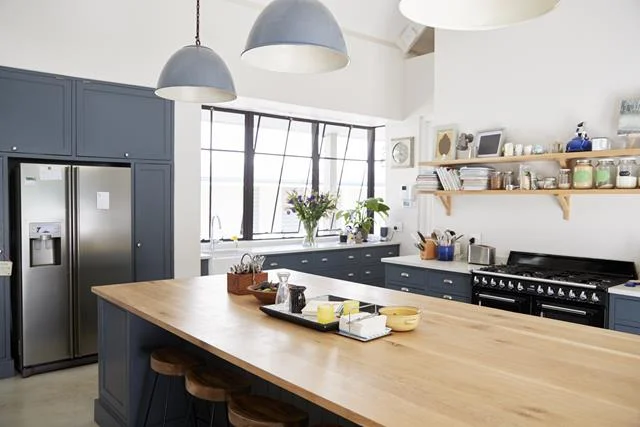Do you need a degree to be a home decorator? The world of home decorating is an exciting and creative field that allows individuals to transform living spaces into beautiful and functional environments. From reimagining the layout of a room to selecting color schemes and furniture, home decorators play a crucial role in helping homeowners create the homes of their dreams.
In this article, we will explore the ins and outs of home decorating, including the responsibilities of a home decorator, the education and certification requirements for entering the field, as well as alternative paths to becoming successful without a formal degree. Whether you’re considering a career in interior design or simply looking to enhance your own decorating skills, we’ll provide valuable insights and guidance on how to navigate this dynamic industry.
As we delve into the various aspects of home decorating, you’ll discover the diverse opportunities available for those interested in pursuing this career path. Whether you have a passion for design or simply enjoy transforming spaces, there are numerous paths to success in the world of home decorating. Join us as we embark on this exciting journey into the art of creating beautiful and functional living spaces.
What Does a Home Decorator Do? Defining the Role and Responsibilities
A home decorator is responsible for transforming and beautifying living spaces through the selection of furniture, color schemes, décor, and other elements to create a cohesive and aesthetically pleasing environment. The role entails working closely with clients to understand their design preferences, budget constraints, and functional requirements to create personalized and comfortable spaces that reflect their individual style.
As a home decorator, you may be involved in various tasks such as conducting client consultations, creating design proposals, sourcing materials and products, coordinating with suppliers and contractors, overseeing installation and styling, and providing ongoing support to ensure the successful implementation of the design plan.
Responsibilities of a Home Decorator
- Conducting client consultations to determine design preferences and requirements.
- Developing design concepts and presenting them to clients for approval.
- Sourcing furniture, accessories, fabrics, and other decorative elements to bring the design vision to life.
Additional Duties
- Coordinating with contractors or vendors for installation of furnishings or decor elements.
- Providing guidance on color schemes, layout arrangements, lighting options, etc.
- Maintaining up-to-date knowledge of current design trends and industry products.
In summary, the role of a home decorator involves creativity, strong communication skills, project management abilities, attention to details, a good eye for aesthetics, and a deep understanding of design principles. While formal education can provide valuable knowledge and skills in this field it is not always necessary. This often goes back to the question “Do you need a degree to be a home decorator?” which will be explored further in the following section.
Education and Certification
When it comes to the world of home decorating, many aspiring decorators wonder whether they need a degree in order to pursue a career in this field. The answer is not straightforward, as there are various paths one can take to become a successful home decorator. While some professionals do hold degrees in interior design or home decorating, others have found success through alternative paths that do not require formal education.
While having a degree in interior design or a related field can certainly provide valuable knowledge and skills, it is not always necessary to be a successful home decorator. In fact, many successful decorators have built their careers through hands-on experience, natural talent, and a strong understanding of design concepts and trends. However, obtaining certification from reputable organizations or completing specialized courses can also help individuals gain credibility and demonstrate their expertise in the industry.
Ultimately, whether or not you need a degree to be a home decorator depends on your personal goals, strengths, and resources. For those who are passionate about design and possess natural creativity, pursuing alternative paths such as apprenticeships, self-study, or mentorship opportunities may provide the necessary foundation for a successful career in home decorating without the need for a formal degree.
The Pros and Cons of Getting a Degree in Interior Design or Home Decorating
Education and certification are important factors to consider when pursuing a career as a home decorator or interior designer. While it is not always necessary to have a degree in interior design or home decorating, there are certainly pros and cons to obtaining this type of education.
One of the main advantages of obtaining a degree in interior design or home decorating is the comprehensive knowledge and skills that can be gained through formal education. A degree program can provide a solid foundation in design principles, space planning, color theory, and other essential elements of home decor. Additionally, many employers may prefer to hire candidates who have completed a formal degree program, as it demonstrates a certain level of commitment and dedication to the field.
On the other hand, pursuing a degree in interior design or home decorating can also come with some drawbacks. One of the most significant downsides is the cost associated with obtaining a degree. Tuition fees for accredited programs can be quite high, and students may also need to invest in materials, textbooks, and other related expenses.
Furthermore, obtaining a degree requires a significant time commitment, often taking several years to complete. This can delay entry into the workforce and may not be feasible for individuals who need to start earning an income sooner rather than later.
Another potential drawback of getting a degree in interior design or home decorating is that it may not guarantee success in the industry. While formal education can provide valuable knowledge and skills, success as a home decorator often relies on creativity, practical experience, networking, and entrepreneurial abilities. Ultimately, whether or not to pursue a degree in this field depends on individual circumstances and career goals.
Alternative Paths
Becoming a successful home decorator without a degree is entirely possible, especially for individuals who are passionate and creative. While a formal education can provide valuable knowledge and skills, it is not always necessary to break into the industry. If you’re wondering, “Do you need a degree to be a home decorator?”, the short answer is no. There are alternative paths that can lead to a successful career in home decorating.
Here are some alternative paths to consider for aspiring home decorators:
1. Apprenticeships: Some established home decorators offer apprenticeship programs where you can learn the ropes and gain hands-on experience in the field.
2. Online courses and workshops: Many reputable websites and organizations offer online courses and workshops specifically geared towards home decorating. These programs can provide valuable knowledge and skills without the commitment of a traditional degree program.
3. Self-study and practice: With dedication and self-discipline, you can educate yourself about design principles, color theory, furniture styles, and more through books, online resources, and practicing your craft in your own home or with friends and family.
Choosing an alternative path to becoming a home decorator can be rewarding but also comes with its own set of challenges. While it may not require a degree, it does require passion, creativity, perseverance, and determination to carve out a successful career in the industry.
Building a Portfolio
When it comes to pursuing a career in home decorating, having a strong portfolio is essential for showcasing your skills and creativity. Whether you have a degree in interior design or not, potential clients will want to see examples of your work before hiring you to decorate their homes. Your portfolio serves as a visual representation of your style, expertise, and the quality of your work.
For those wondering if they need a degree to be a home decorator, building an impressive portfolio can often speak louder than formal education. In fact, many successful home decorators have built their careers without obtaining a degree in interior design. Instead, they focused on gaining practical experience through hands-on projects and internships, allowing them to develop a diverse and impressive portfolio that ultimately landed them clients.
To start building your portfolio, consider taking on small home decorating projects for friends and family or offering your services at reduced rates to build up your body of work. As you complete each project, document the process from start to finish with high-quality photographs that highlight the transformation of the space.
Additionally, including client testimonials and before-and-after shots can help potential clients understand the value you bring as a home decorator. By continuously adding new projects to your portfolio and sharing it across various platforms such as social media or professional websites like Houzz or Pinterest, you can effectively showcase your skills and attract potential clients.
Networking and Building Clientele in the Home Decorating Industry
Connecting With Industry Professionals
Building a successful career as a home decorator often involves creating connections within the industry. Networking provides opportunities to collaborate with other professionals, such as interior designers, furniture manufacturers, and real estate agents. Attending industry events, trade shows, and local meetups can help you establish valuable relationships that may lead to new clients or partnerships.
Utilizing Social Media and Online Platforms
In today’s digital age, social media and online platforms play a crucial role in marketing and building clientele for home decorators. Establishing a strong online presence through platforms like Instagram, Pinterest, and Houzz can help showcase your work to a wider audience. Engaging with potential clients through these channels can also provide a more personal connection and attract new business opportunities.
Client Referrals and Word-of-Mouth Marketing
Satisfied clients can be one of the most powerful marketing tools for home decorators. Encouraging happy customers to refer their friends and family members to your services can result in valuable word-of-mouth marketing. Building strong relationships with clients and providing exceptional service can lead to repeat business as well as referrals from their network.
As you navigate the world of home decorating, networking and building clientele are essential components of establishing yourself in the industry. By taking proactive steps to connect with professionals, utilize online platforms effectively, and leave a positive impression on clients, you can pave the way for a successful career as a home decorator – even without a formal degree in the field.
Continuing Education and Staying Updated in the Industry
As a home decorator, it is important to stay updated with the latest trends and design techniques in the industry. While a degree is not required to become a home decorator, continuing education through workshops, seminars, and online courses can be beneficial for staying current in the field.
Continuing education opportunities allow home decorators to learn about new materials, technologies, and design concepts that can enhance their skills and knowledge. Many organizations and professional associations offer certification programs and specialized training for home decorators who want to expand their expertise.
Networking with other professionals in the industry is another way to stay updated on the latest trends and developments in home decorating. Joining professional associations and attending industry events can provide valuable insights and connections that can help home decorators keep abreast of industry changes.
In addition to staying updated with design trends, home decorators should also educate themselves on business practices and marketing strategies. Understanding how to effectively market their services and manage their business will contribute to their overall success as a home decorator. Overall, while a degree is not necessary to become a successful home decorator, continuing education plays a crucial role in maintaining relevance and competitiveness in the industry.
Conclusion
In conclusion, the world of home decorating offers a variety of paths to a successful career, making it possible for anyone with a passion and talent for design to thrive in the industry. While obtaining a degree in interior design or home decorating can provide valuable knowledge and skills, it is not necessarily required to become a successful home decorator. Alternative paths, such as self-study, workshops, and mentorship, can also lead to a fulfilling career in this field.
For those considering pursuing a degree in interior design or home decorating, it is important to weigh the pros and cons. While formal education can provide a solid foundation and credibility, it also requires significant time and financial investment. On the other hand, taking alternative paths allows for flexibility and the opportunity to tailor one’s learning experience to their specific interests and goals.
Ultimately, what matters most in the world of home decorating is creativity, skill, dedication, and the ability to connect with clients. Building a strong portfolio that showcases your work and continually networking within the industry are essential aspects of establishing oneself as a successful home decorator.
Staying updated on trends and techniques through continuing education also contributes to building a thriving career in this dynamic field. Whether through formal education or alternative paths, there are diverse opportunities available for individuals who have a passion for creating beautiful spaces.
Frequently Asked Questions
Can You Call Yourself an Interior Decorator Without a Degree?
In the United States, anyone can technically call themselves an interior decorator without a degree because there are no specific legal requirements around this title. However, having a degree or certification can add credibility and expertise to your work.
How to Start Interior Decorating Without a Degree?
Starting a career in interior decorating without a degree is possible through self-study, online courses, workshops, or apprenticeships. Building a strong portfolio and gaining practical experience through internships or freelance projects can also help kickstart your career in this field.
What Does It Take to Be a Decorator?
Being a successful decorator requires creativity, an eye for design, good communication skills, and the ability to understand clients’ needs and preferences. Attention to detail, knowledge of different design styles, color theory, space planning, and the latest trends are also essential for creating aesthetically pleasing and functional spaces.
Additionally, staying updated with industry changes and continuously learning new techniques is important for professional growth in this field.

Hello, lovely readers! I’m Sheila Collins, and I’m delighted to be your trusted guide on this exciting journey of home improvement, design, and lifestyle. As the founder and editor-in-chief of Home Guide Blog, I’m passionate about all things related to homes, and I’m here to share my knowledge, experiences, and insights with you.





